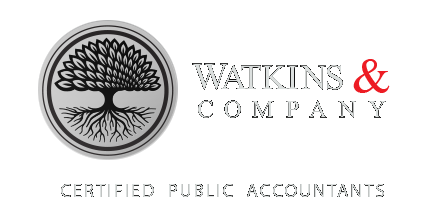Business Expense Tracking and Reimbursement Tips for Small Businesses
As a small business owner, you may have found yourself bogged down with the ins and outs of financial hassles like keeping track of business expenses and managing reimbursements. But breathe easy – relief is just around the corner! With the right support and effective expense tracking methods, your small business can thrive. All it takes is a few game-changing tips for managing small business expenses and the right professional accounting team on your side and you’ll be set up for successful financial management.
Why is Tracking Expenses Important?
What is the importance of expense and reimbursement tracking for small businesses? Keeping accurate accounting records of expenses is more than just a routine administrative task, it is in fact a critical aspect of financial and cash flow management for small businesses. Expense tracking maximizes your tax deductions, helps you maintain a clear view of your company’s financial health, prevents fraud and unauthorized spending, and overall enables you to keep your finger on the pulse of your business.
5 Tips for Small Business Expense Tracking
So, what is a good strategy to help with tracking expenses? The Watkins & Co. team is here to share how to keep track of business expenses.
- Open a Business Bank Account & Connect Financial Institutions
It’s vital to start by opening a dedicated business banking account to separate your personal and business finances. You may also consider opening a business credit card as well. Then by connecting your bank and credit card accounts, you will have an automated process that reduces manual errors and makes tracking much easier and more efficient.
- Create an Expense Policy & Spending Limits
To ensure that your entire team understands your expectations, it’s important to develop and clear and concise process and policy for expenses. Your employees need to know and understand your policy, including spending limits, how to manage receipts, timely reporting, and the reimbursement process. This may require a few staff training sessions so that everyone is on the same page.
- Record All Expenses Promptly & Manage Receipts Properly
Part of the staff training is to make the recording of expenses a habit. Every expense should be recorded promptly and accurately with receipts managed properly. Physical or paper receipts need to be organized with a clearly labeled filing system. Digital receipts can be kept in a cloud-based solution with a similarly organized filing system. Consistency in filing, as well as accurate and timely recording, ensures that nothing is overlooked.
- Audit Spending & Recording Consistently
Once you have all your processes in place, it’s important to consistently run expense reports, audit spending, and ensure accuracy.
- Use an Expense App or Software
In today’s digital world, reliable accounting software can be your best friend! Used in combination with expense tracking apps and software options provides a streamlined method of recording expenses and keeping receipts. You’ll be able to take pictures of receipts, categorize expenses, and record spending data on easy-to-use expense templates. Plus, you’ll have the benefit of accurate, automated expense report generation. Errors are reduced and your entire expense management process is streamlined and user-friendly. Some popular business expense tracker apps include QuickBooks, Expensify, FreshBooks, Zoho Expense, and SAP Concur Expense, to name a few.
Accounting Firm for Small Businesses, Jackson, MS
Using the services of a professional accounting firm like Watkins & Co. can help you get the ball rolling in the right direction. We can help you establish expense tracking processes, determine categorizations, set spending limits, and select apps or software, to name just a few of our services. Plus, our reliable and experienced accountants can guide you through expense reports and make sense of your small business’s financial health overall. Give us a call today!




